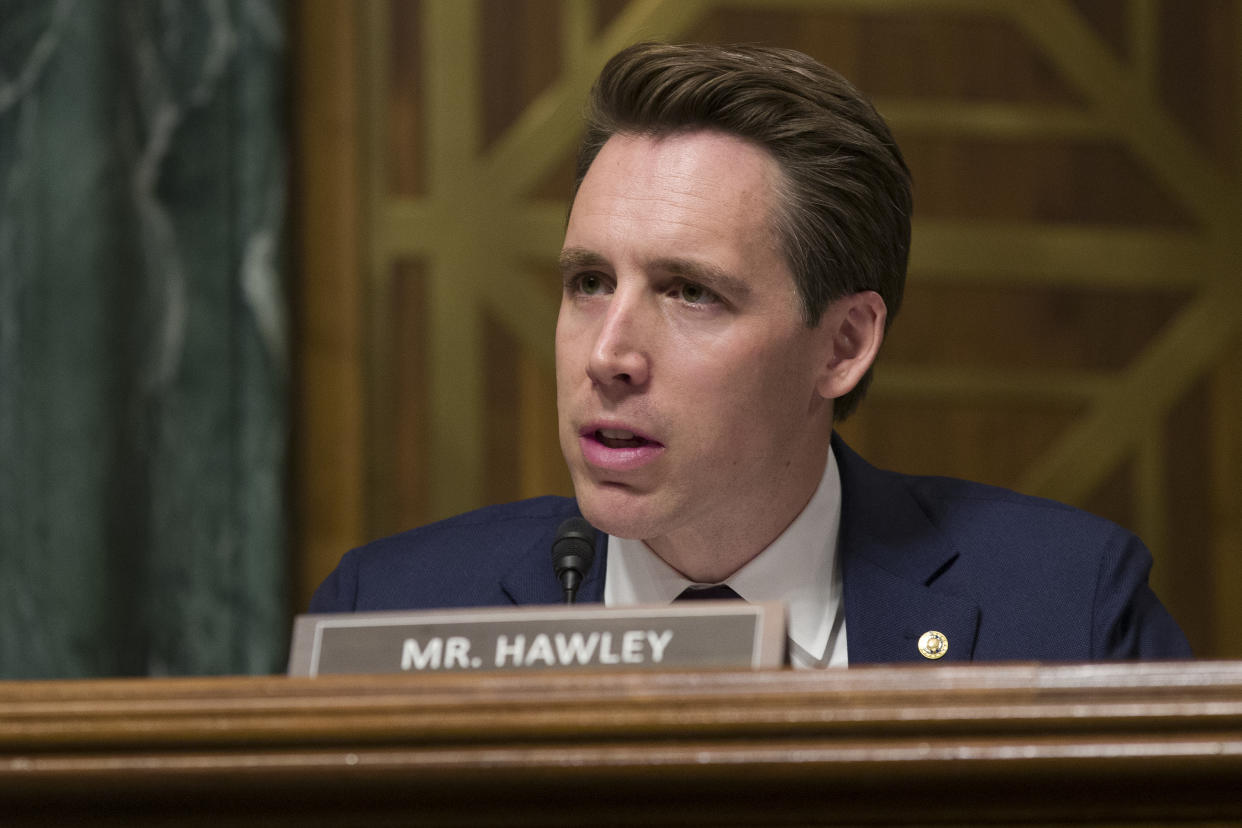New bill aims to protect 'sensitive' research from foreign spying

A new Senate bill aims to stop foreign adversaries from spying on sensitive research and technology on college campuses.
This week, Sen. Josh Hawley (R-MO) introduced a bill that he says will keep China, Russia and Iran from “weaponizing” sensitive or national-security related research.
“We've got to stop espionage. We all ought to be able to agree on that,” said Hawley.
The bill would create a new task force within the Department of Homeland Security to designate certain research projects or technology as “sensitive.” If researchers from China, Russia or Iran want to to take part in those “sensitive” projects, they would have to undergo a DHS background check.
“We're not going to prevent researchers who want to come here for legitimate purposes and who have no security issues. What we're saying is those who want to work on sensitive technologies and who have some connection to the Chinese government, or the Russian government, or the Iranian government, they're not going to be able to work on technologies, to work in labs that deal with sensitive technology that's designated by DHS,” said Hawley.
In an interview with Yahoo Finance, Hawley said the problem of spying at American universities is “significant.”
“Intelligence information indicates that we know that China and Russia and Iran, all three of them, recruit researchers, use their own researchers that come from their country, to try and conduct espionage in our labs, in our universities, and we have to stop it. We've got to stand up and say that we're not going to stand for this,” said Hawley.
Technology from Chinese companies
Hawley’s bill would also prohibit sensitive research projects from using technology made by companies that could present a national security threat — including Huawei, ZTE and Kaspersky.

Some universities have already cut ties with companies like Huawei and ZTE.
“Huawei is a state-run entity, and whatever they say, we know that the Chinese government and the Chinese military essentially controls Huawei. They've got back doors built into the Huawei network. It is not safe for American consumers. It is not safe for any of our allies to use, and introducing it anywhere in a network over which American consumers' personal information, let alone our military secrets or our top technologies from the past, is unsafe, and so we've got to hold the line firm on that,” said Hawley.
Rep. Jim Banks (R-IN) has introduced similar legislation in the House.
“We cannot afford to ignore this threat any longer. President Trump’s Executive Order effectively banning Huawei products was a great step forward, but we must do more to protect our nation’s sensitive research from adversarial regimes,” Banks said in a statement.
Hawley plans to submit the bill as an amendment to the National Defense Authorization Act, which is currently making its way through Congress.
But critics, including NAFSA: Association of International Educators, argue the bill appears to ignore existing processes designed to catch bad actors.
“There is already thorough vetting and monitoring in place of international students and scholars. Even though they make up a very small percentage of those entering the U.S. annually (3 percent), international students, scholars and exchange visitors are the only nonimmigrants who are tracked and monitored from the moment they apply for an entry visa until they depart the United States at the end of their program,” said Jill Welch, NAFSA’s Deputy Executive Director for Public Policy.
Welch also noted universities are competing for global talent.
“We need to balance any new measures with the reality that international students are essential to our educational institutions, and we must avoid deterring future students. They bring $39 billion to our economy in tuition and living expenses, in addition to incalculable benefits to our science and innovation agenda,” said Welch.
Yahoo Finance asked Hawley about concerns the bill could lead to a decline in international students.
“If you're here for legitimate purposes, you've got none of those ties, there will be no problem at all. But what it will do is, it will stop these foreign governments, our primary foreign adversaries, from trying to weaponize our own research labs and research universities against us,” said Hawley.
A spokesperson for New York University, which claims to have the highest number of international students in the country, told Yahoo Finance it is supporting a different bill to address the same issue.
NYU said it’s backing the Securing American Science and Technology Act, which would establish a working group to develop ways to protect research, while maintaining a “welcoming environment for foreign talent.”
NYU and dozens of other groups and universities signed a letter in support of SASTA.
“The Securing American Science and Technology Act takes a proactive and sensible approach to safeguarding federally funded research and development from growing threats of foreign interference, cyberattacks, theft, and espionage,” the groups said in a letter.
Jessica Smith is a reporter for Yahoo Finance based in Washington, D.C. Follow her on Twitter at @JessicaASmith8.
Republican senator: Facebook is 'expanding their monopoly' with Libra
Businesses head to DC to make their case against tariffs
CEOs say trade uncertainty is biggest concern for US economy
Read the latest financial and business news from Yahoo Finance
Follow Yahoo Finance on Twitter, Facebook, Instagram, Flipboard, LinkedIn, YouTube, and reddit.


